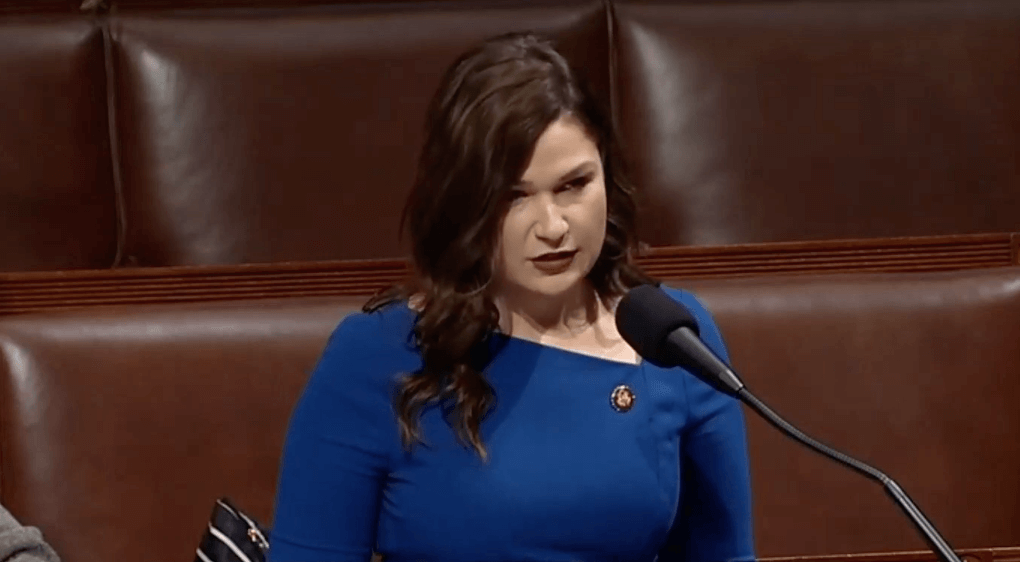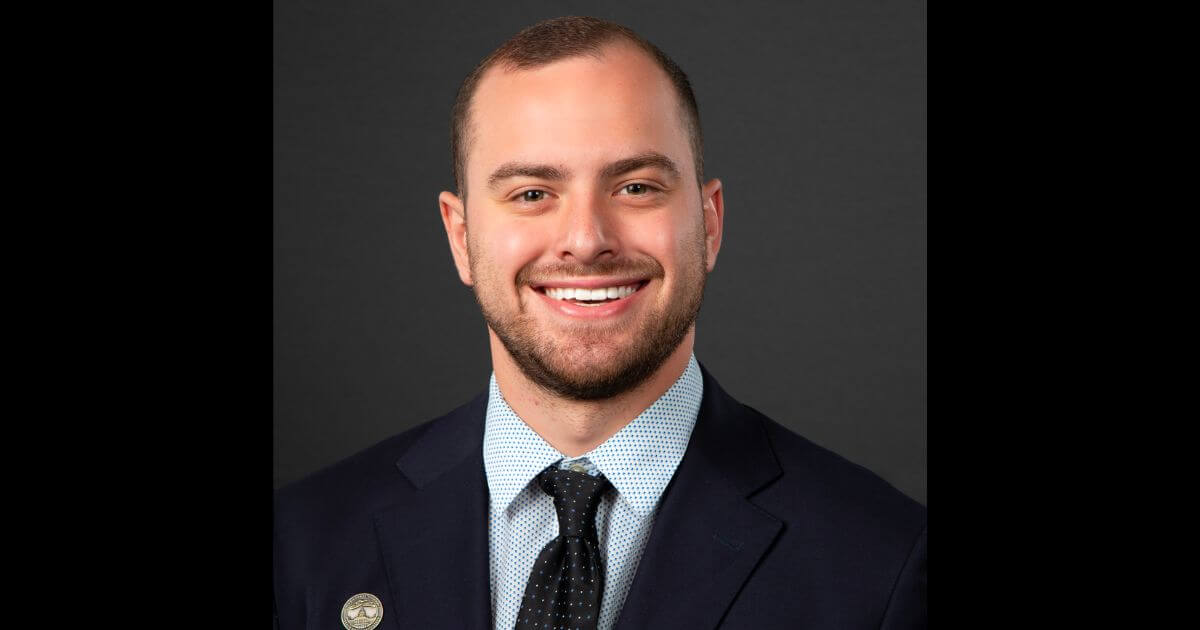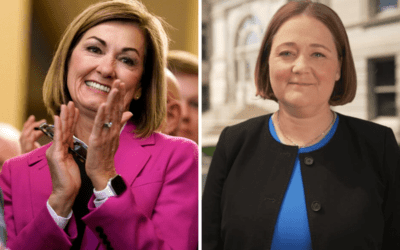
Each time Congress has passed legislation in response to the coronavirus pandemic, lawmakers know another bill is not far behind.
This time, as Democrats and Republicans spar over whether to prop up city and state budgets walloped by the pandemic, the scope of a fifth relief package is less certain.
But Iowa Congresswoman Abby Finkenauer is getting ahead of the fight over funding, putting out pages of priorities she believes “are necessary to ensure Iowans are equipped to respond to the pandemic, able to weather its economic fallout and ready to re-engage when our economy returns to normal.”
“The way that I think this should be framed — and why these are my priorities — is because these go to the values of who we are as a country,” Finkenauer said in an interview with Starting Line. “Are we a country that cares about our neighbors or are we not? I think this is a time, and in this package, that we show we care and we stand up for the folks who have been caring for our friends and neighbors on the frontlines.”
[inline-ad id=”1″]
For the 1st District congresswoman, the priorities fall into four primary categories: expanding assistance for families; supporting health care providers and essential workers; assisting local communities; and investing in the future.
Heading into today, lawmakers in the House and Senate were planning to return Monday to Washington, D.C., to resume their work in-person. Tuesday morning, however, word came from Majority Leader Steny Hoyer that, based on guidance from the House physician, members will not return to the Capitol next week. Senators are still expected to return, however.
Both chambers have been home for an extended recess due to concerns about bringing hundreds back to the Capitol in close quarters, though House members did vote in-person last week to replenish the Paycheck Protection Program.
“We’ll have to always put health and safety first and continue to tell everyone to do so,” Finkenauer said. “At the end of the day, though, if we’re called back at a moment’s notice then we’ll be there because that’s our job and that’s what we’re supposed to do. Anything we can’t do from here we’ll have to go back to D.C. to be able to do, but until then, we’ll continue to work from home putting these packages together.”
[inline-ad id=”0″]
For families, Finkenauer wants a special enrollment period created on the health insurance marketplace for people who have lost their jobs; more stimulus checks for individuals; and an extension on student loan deferment, among other measures.
Essential workers, particularly in manufacturing, food processing and long-term care facilities, have been on the forefront of concerns in Iowa as COVID-19 ravages meatpacking plants in Columbus Junction. Waterloo and elsewhere. As of Tuesday morning, nearly two dozen outbreaks have been confirmed at nursing homes across the state.
Finkenauer, whose Eastern Iowa district includes hard-hit facilities in Waterloo and Cedar Rapids, already has called for heightened safety precautions and more personal protective equipment (PPE), in addition to sponsoring a bill aimed specifically at meat processing employees and their safety while at work.
[inline-ad id=”2″]
“At the end of the day, we need to make sure that our folks have what they need and we’ll continue to play oversight here, especially when it comes to our food processing plants,” Finkenauer said. “Our folks in my district got hit very hard.”
She emphasized the need for manufacturing more PPE, noting President Trump’s refusal to utilize the Defense Production Act for this purpose “is still something that does not make sense and something that needs to continue to be pushed.”
In the meantime, Finkenauer said, she supports making forgivable loans available to manufacturers who have shifted their production lines to make PPE.
In her five-page priorities proposal, Finkenauer wants the government to provide hazard pay and other benefits to essential workers; financially support the U.S. Postal Service; and, in the Public Health and Social Services Emergency Fund, provide dedicated dollars for locally managed rural hospitals and health care providers.
[inline-ad id=”3″]
National news outlets are characterizing the debate over emergency spending for states and local governments as the looming fight between Democrats and Republicans. Republicans, including Trump and Sen. Joni Ernst, say they do not want a coronavirus relief bill to serve as a “bail out” for states they believe have mismanaged their budgets for years.
According to Finkenauer’s office, the $2 trillion CARES Act passed at the end of March provides $150 billion for state, local and tribal governments to cover costs related to COVID-19. The problem with the Coronavirus Relief Fund, Finkenauer says, is that communities with populations under 500,000 must rely on funding allocations through their states rather than direct financial assistance awarded to large cities.
Finkenauer proposes lowering the population requirement so Iowa cities, a vast majority of which are under 100,000 people, can more quickly receive necessary aid.
[inline-ad id=”4″]
She also wants to further assist biofuels producers, pork, cattle and dairy farmers impacted by the pandemic and increase the flexibility of federal programs so they can efficiently access funding and other assistance.
“They’re not partisan,” Finkenauer said, of her legislative priories. “They’re things that we should be able to come together on, to agree on, and that’s what we’ll continue to push.”
By Elizabeth Meyer
Posted 4/28/20
Iowa Starting Line is an independently-owned progressive news outlet devoted to providing unique, insightful coverage on Iowa news and politics. We need reader support to continue operating — please donate here. Follow us on Twitter and Facebook for more coverage.

Lanon Baccam wins 3rd District Dem primary, will face Zach Nunn
Baccam defeats Melissa Vine to challenge Republican incumbent Lanon Baccam defeated Melissa Vine in Tuesday’s Democratic primary for Iowa’s 3rd...

Hardin County man running for office as Trump-loving Democrat to local party’s dismay
Brad Rewoldt, who recently changed his party affiliation from Republican, says his support of Trump will probably 'piss off' Democrats There is a...

Scheetz: Tax cuts for all Iowans, not just the wealthy
State Rep. Sami Scheetz says all Iowans should benefit from tax cuts via a sales tax reduction As a state representative, my job is to serve the...

Kalbach: What Iowa Republicans focused on during legislative session
Our state legislative session finished up towards the end of April, and I’m glad it’s over! From further de-funding and privatizing our public...

Advocates file suit to stop Iowa’s ‘unconstitutional’ immigration law
Immigration advocates filed a federal lawsuit Thursday to stop Iowa’s new immigration law—SF 2340—from taking effect arguing that the legislation...

Iowa Republicans make outlawing gay marriage key 2024 campaign priority
Iowa Republicans have made outlawing gay marriage a key goal in their 2024 party platform. During the Iowa GOP’s 2024 state convention on Saturday,...




